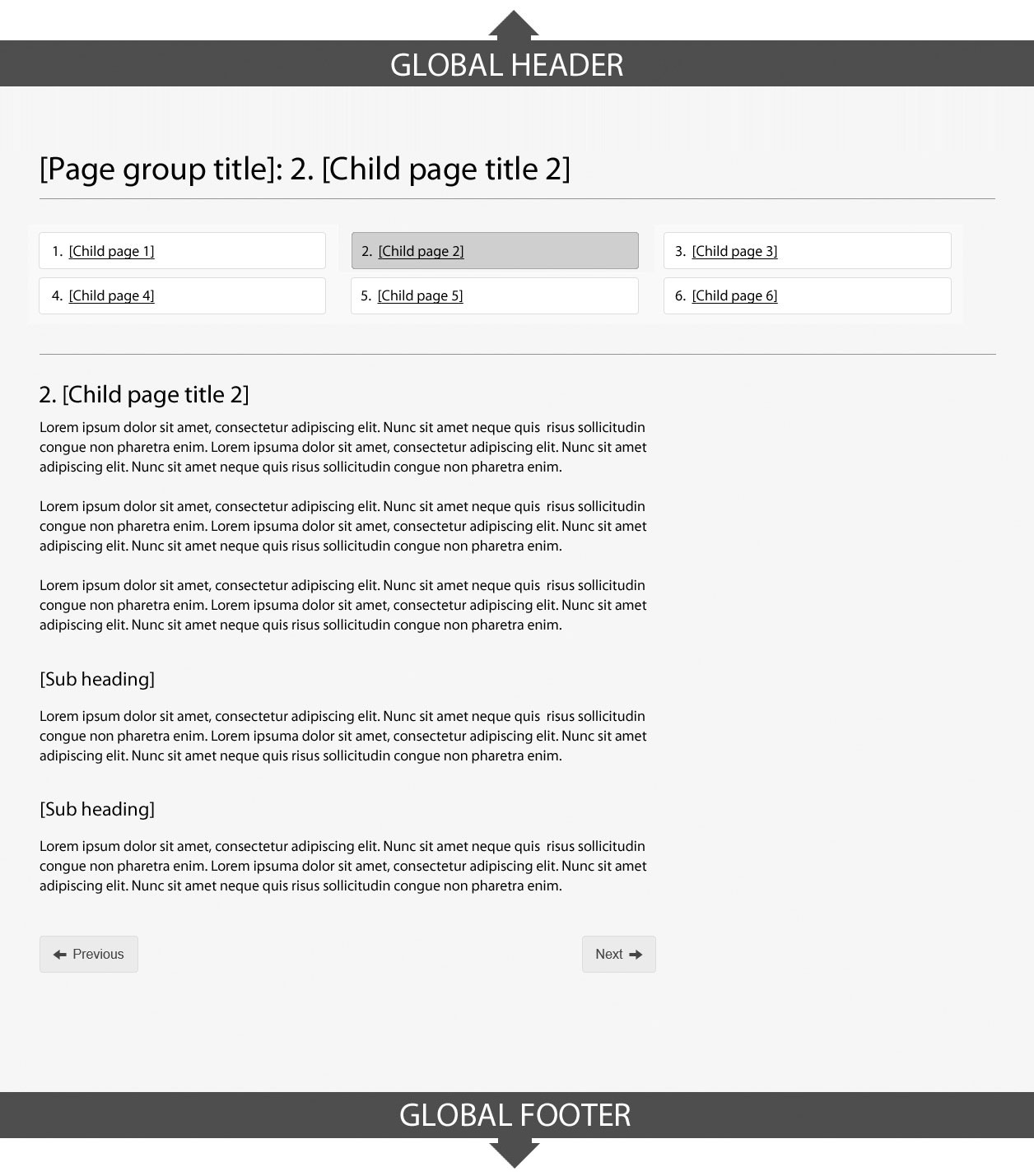Ordered multi-page navigation design pattern: Canada.ca design
The ordered multi-page navigation pattern:
- is a set of links to a group of several pages intended to be read in a preferred order
- includes previous/next links to guide a person through the page set in the preferred order
Objective
Use the ordered multi-page navigation pattern to provide:
- an outline of content that spans multiple pages and has a default or preferred order (for example, guides, service initiations, sequential instructions)
- a method of jumping to any page within the sequence, bypassing the default order of the pages
Do not use this pattern when:
- the content exists as a single page requiring scrolling to view all the subsections (use the In-page table of contents pattern )
- the content exists as a set of multiple pages that does not have a default or preferred order
- the default order of the content must not be circumvented that is when the preferred order is crucial and people cannot be permitted to move between pages in a different order
How and when to use ordered multi-page navigation
- Always position the ordered multi-page navigation pattern at the start of the page, before the substantive content of the page begins
- Ensure that the order and position of the page links are identical on each page of the set
- Number the step-by-step links to indicate the preferred order. Not all links necessarily need to be numbered, if they represent pages/steps that are not part of the sequence
- Highlight the link for the current page. Do not highlight with the same colour used on primary action buttons
- Position previous/next links immediately below the substantive content on the page
- Accompany the previous/next labels with arrow icons to reinforce the concept
- Position previous/next links consistently (for example, “previous” on the left, “next” on the right)
- On the first page of the document, omit the “previous” link; on the last page of the document, omit the “next” link

Page details
- Date modified: